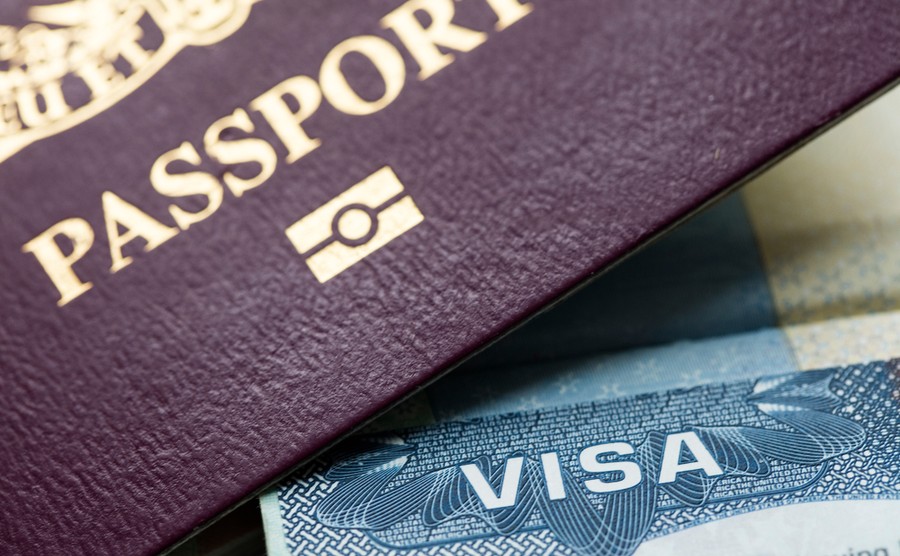Since Brexit, the process of moving to France has become more complicated. Under the 90-day rule, if you wish to stay for longer than 90-days at one time, or within a six-month period, you will need a visa. Over the next few weeks, we will cover visas in more detail but in this article, we look primarily at visas for those who would like to work in France, or maybe work for a company back in the UK.
There was a time when moving to France took little more than a heady mix of a dream and the courage of conviction. Accompanied by a large dose of the spirit for adventure, maybe. But relocating to France since Brexit is very different. Unless you arrive here armed with the relevant permissions in advance, you are unable to make the choice to stay after 90 days.
As a result of the UK leaving the EU, a British citizen relocating to France is a TCN – a Third Country National. It refers to anyone required to apply for a visa to remain within a country not of their origin.
Find homes in France via our property portal.
In the past, many expats, having fallen in love with the country, decided simply to remain and build their lives in France. Even then a successful move generally required meticulously, relocating to France since Brexit is no longer as straightforward.

The visa application process
Applying for a visa to run your own business
The process of applying for a visa depends on your unique personal situation. For those in the position of setting up their own businesses, it is perhaps the most challenging.
Information on how to apply for visas and the documents to provide can be found here.
Initially, you must register on the official website to access the information required for the application. Copies of the relevant visa application forms are available online. You also need copies of your Passport/ID, birth certificates, bank statements (for proof of finances) and a criminal record check. And of course, a business plan. Not forgetting any certificates or qualifications relating to your planned business. Don’t forget, several copies of each.
Once your dossier is complete, carefully check nothing is missing, then book a meeting at one of the Visa Application Centres. These are based in London, Edinburgh or Manchester. During this meeting, you submit and explain each of the documents, as well as providing biometric data. You will not, however, find out whether the visa has been granted during the course of this first visit.

Map of France
Next steps
Once the decision is made, your original passport is returned to you. You can either choose to return to the centre to collect this, or it can be sent by recorded post. Only when you receive this will you know whether the visa has been granted.
If granted, you receive correspondence from the Consulate of France in London. This tells you that within three months of your arrival in France you must register and validate your visa. This is via a website link. When doing this, you need to provide an email address, visa information and official date of entry into France. Additionally, a residential address in France and credit card details to pay for your confirmed OFII residence permit. You also need to commit to attending both a medical and language lessons.
Be warned, not validating your visa within three months of your arrival in France since Brexit means that you are no longer considered a legal French resident.

Guides are available to help you through the process
Alone or with help
Of course, you can choose to embark on this undertaking alone, or using paid help. Whilst some relocating to France since Brexit choose to tackle this themselves, others, having seen the depth of detail of the administrative requirements, quickly seek paid help.
There are many businesses offering these services based both in the UK and France. In fact, handholding services in France have proven to be popular businesses for some arriving in France, having been through the process themselves. It is, however, highly recommended to check references as rules are evolving quickly. You must engage someone cognizant of all the up-to-date rules and regulations.
It is also important to work closely and collaboratively with your service provider, rather than assuming you need do nothing. While they can cut through the noise and volume of the information available on the internet and navigate the process for you, they still need input from you. This will include factual details of your intentions, as well as the supply of required documentation in a timely manner.

Two hands shaking
The value of a helping hand
Jonathan H planned on moving to Normandy to set up a business providing gite accommodation alongside apartment rentals. He was unable to do so pre-Brexit due to family commitments. Having fully investigated the detail of what was required for relocating to France since Brexit, and in some cases finding conflicting information from official sources, his preference was to use a hand holder.
He deems it money well spent. The hand holder gave him the reassurance of knowing exactly which documents he needed to supply for the accurate compilation of his dossier. And after conducting his own market research for his business in the area beforehand, was able to relay factual information to his service provider. The hand holder in turn compiled the business plan on his behalf knowing what exactly what was required.
For Jonathan, knowledge of providing the correct information from the outset and creating the best chance of having his visa granted, was invaluable. And not having to research and compare conflicting information on his own saved him an enormous amount of time, as well as a great deal of stress. Despite the paperwork and information that he had to provide the hand holder with, he acknowledges that he would have struggled on his own. While the visa still took three months to be granted from the meeting date at the Visa Application Centre in London, he believes the process start to finish would take far longer without help.

Will you traverse the application process alone?
Navigating the process alone
Chantelle Hodges chose to tackle it alone. Unable to have made the move pre-Brexit due to home renovation projects, she was looking to relocate to France and set up her beauty business, La Belle Empiree. A beauty, cosmetic and personal care business based in the Charente. She found the perfect property in September 2021 and started the Visa process.
She admits having initially underestimated relocating to France since Brexit. Especially at a time when confusion still reigned with regards to what was required. And then, a Covid backlog caused the application centre to close just as she was ready to book her appointment made for stressful times. This in turn forced her to extend her tenancy, as well as prolonging the process of her French house purchase. She was naturally reticent to buy a house prior to a Visa being granted.
In January, she booked an appointment for the end of the month. This meeting appeared to go well. Chantelle submitted documents and was told the dossier had been accepted and was undertaking the biometric process. Two weeks later she received an email to say that her business plan required sign off from the local prefecture. Of course, this prolonged the process and didn’t help the nerves. But Chantelle efficiently complied, and on the 26th February she attended an appointment at the centre to retrieve her passport. At this point she was relieved to find out the Visa had been granted. On that same day she then signed her house purchase documents and was able to rebook travel plans, arriving in France in March.

Could this be your new home?
Challenges/warnings
You should be aware that from the meeting date at the application centre, you will be without your passport until the Visa is granted. Fine perhaps, if you don’t need to go anywhere in between. But not so much if you may have to.
Perhaps this process serves as an initiation. A sign of things to come once you do relocate. France loves administration and that includes dossiers of reams of papers, including several copies of each.
It is worth noting that many Visa applicants turn up to application meetings with incomplete dossiers or having applied for the wrong Visa entirely. This may serve to back up the value of seeking paid help. Whether you have a hand holder manage the whole process, or simply verify you are doing it correctly.
Both people we spoke to agreed that long and arduous though it had been, having been granted their Visas, it was worth it. And may have in some way prepared them for the administrative tasks ahead of them since their arrival in France.
Relocating to France since Brexit is without a doubt more challenging than it once was. But it is more than possible. This is illustrated by the grand number of expats who still choose to do so. Regardless of the administrative hoops they must now jump through. And for the life you dream of, it’s still perhaps a small price to pay!













